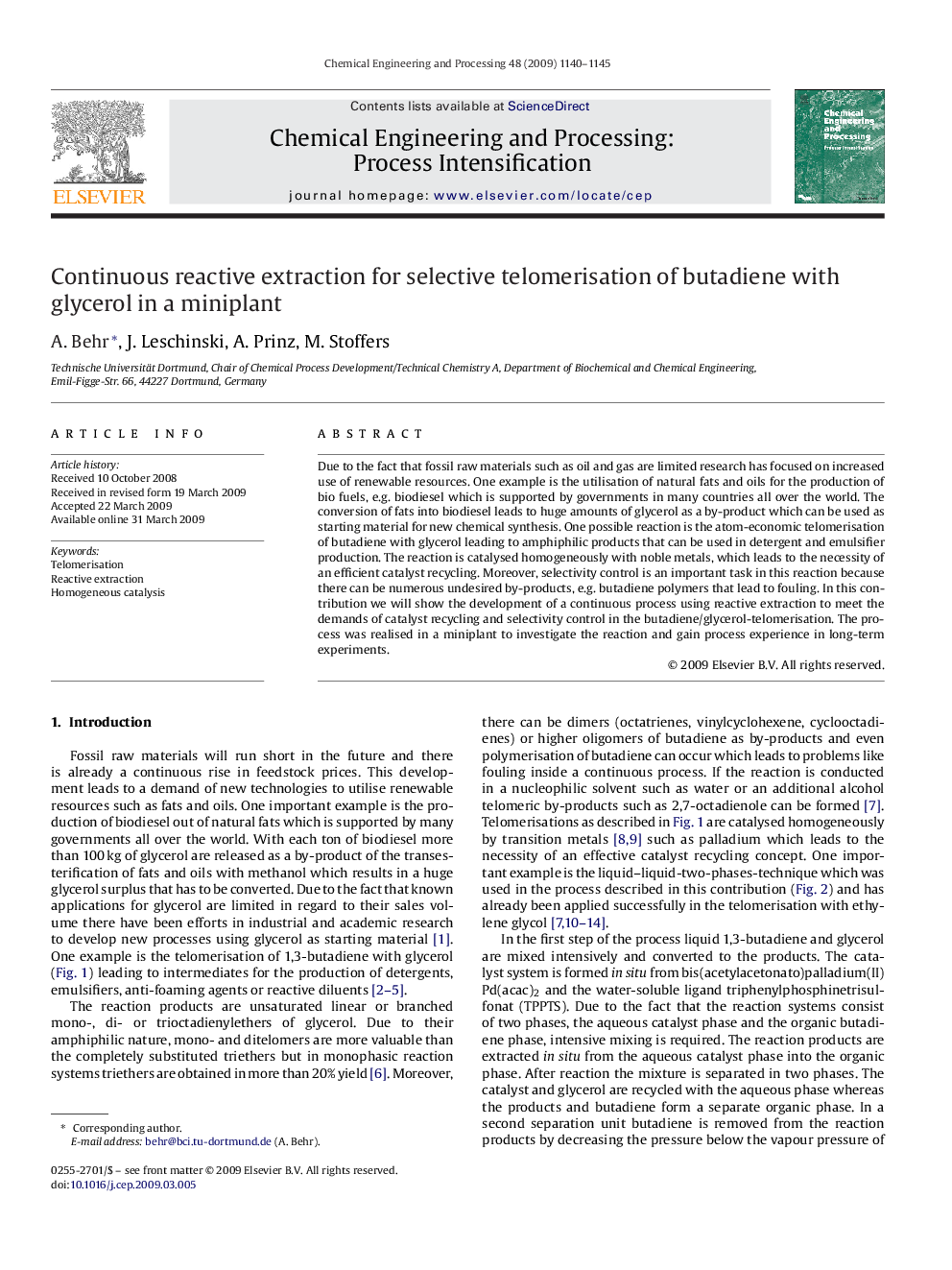| Article ID | Journal | Published Year | Pages | File Type |
|---|---|---|---|---|
| 687471 | Chemical Engineering and Processing: Process Intensification | 2009 | 6 Pages |
Due to the fact that fossil raw materials such as oil and gas are limited research has focused on increased use of renewable resources. One example is the utilisation of natural fats and oils for the production of bio fuels, e.g. biodiesel which is supported by governments in many countries all over the world. The conversion of fats into biodiesel leads to huge amounts of glycerol as a by-product which can be used as starting material for new chemical synthesis. One possible reaction is the atom-economic telomerisation of butadiene with glycerol leading to amphiphilic products that can be used in detergent and emulsifier production. The reaction is catalysed homogeneously with noble metals, which leads to the necessity of an efficient catalyst recycling. Moreover, selectivity control is an important task in this reaction because there can be numerous undesired by-products, e.g. butadiene polymers that lead to fouling. In this contribution we will show the development of a continuous process using reactive extraction to meet the demands of catalyst recycling and selectivity control in the butadiene/glycerol-telomerisation. The process was realised in a miniplant to investigate the reaction and gain process experience in long-term experiments.
